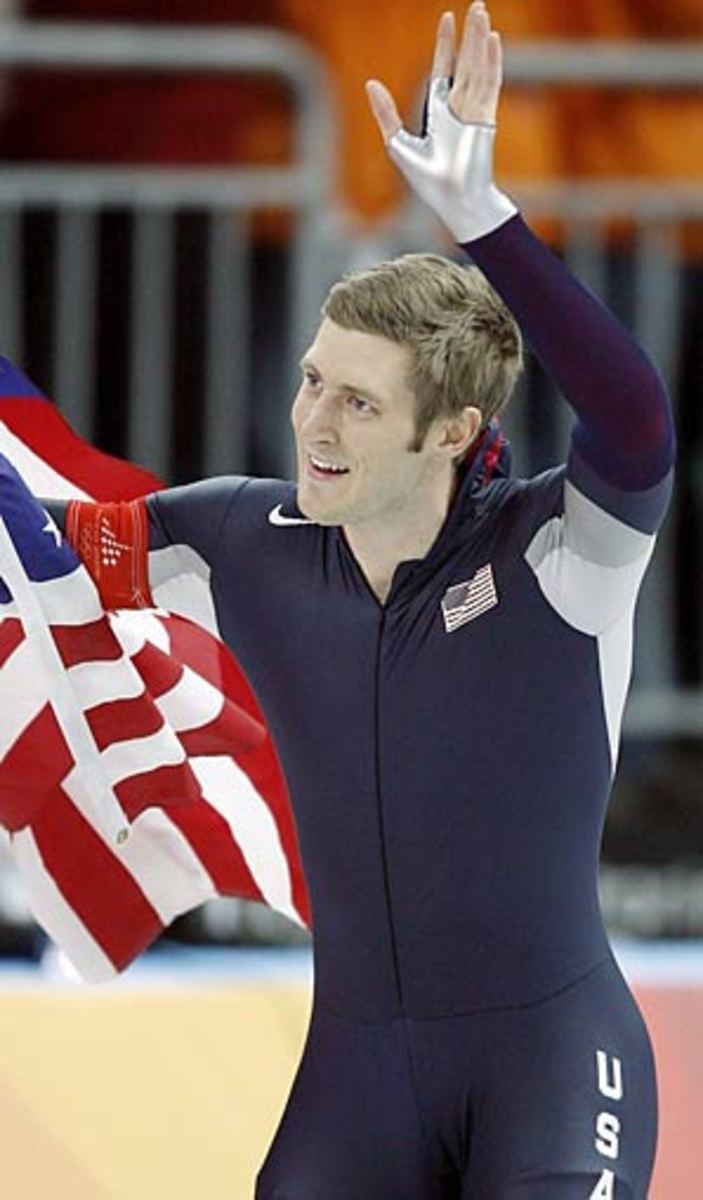My Sportsman: Joey Cheek


Sports Illustrated will announce its choice for Sportsman of the Year on Dec. 2. Here's one of the nominations for that honor by an SI writer. For more essays, click here.
You haven't heard much from or about my 2008 Sportsman of the Year unless you've been haunting classrooms at Princeton University. That's where Joey Cheek, at 29 one of the older members of the class of 2011, is studying economics and Chinese. Just like him to double-major in a couple of real guts, huh?
Then again, the bread-and-butter sports fan might not have heard of Cheek even before that, since Cheek's sport, speed skating, appears on the American radar only once every four years and then only as a blip. A native of the frozen tundra of Greensboro, N.C., (he eventually found the ice after starting as an in-line skater) Cheek is the owner of all three varieties of Olympic medal, having won gold in the 500 and silver in the 1,000 at Turin in 2006 and bronze in the 1,000 in 2002 in Salt Lake City. He was also the world sprint champion in 2006.
Cheek last made headlines for something that happened off the ice -- the Chinese Embassy revoked his visa shortly before he was set to leave the U.S. for the Beijing Olympics. What prompted China's action was Cheek's involvement in Team Darfur, an organization of international athletes he co-founded to bring awareness to the crisis in Darfur, Sudan. Cheek's intention -- and he made no secret about it -- was to talk to athletes, the media and the public in Beijing about China's financial support of a government that has brutalized Darfur's people.
The visa revocation was news for a day or two but it died quickly, partly because IOC and USOC officials gave Cheek zero support. Olympic poohbahs have long been nervous about athletes making political statements, of course. Before the Beijing Games began the IOC issued a vague one-page memo outlawing any kind of "demonstration or political, religious or racial propaganda" in Olympic areas. That ignored the obvious fact that the nationalistic bent of the competition is one big political statement. Cheek's visa was revoked, plain and simple, because the Chinese government did not want to be embarrassed, and it used its bully pulpit to silence Cheek.
"I believe that the Olympics is a great forum for discussing human rights," Cheek said after he was banned. "I think you can do that respectfully and within the rules that have been laid out by the IOC."
Of course you can. But not according to the USOC. "[Cheek] was not a part of our delegation here but he was attempting to come to the Games as a past Olympian and participate and watch these games," Jim Scherr, the CEO of the USOC, said after the visa news became public. "We think that it is unfortunate that he will not have that opportunity, but that's something between this government and Joey as a private citizen." Great stand, USOC, for a champion athlete who has appeared on a Wheaties box, received numerous humanitarian and sportsmanship awards and carried the flag in the closing ceremonies in Turin, an honor voted on by his U.S. teammates.
Cheek took his medicine like a man and will continue to work on human rights issues. Don't bet against him going to China again some day and addressing the issue, perhaps even in that country's native tongue.
